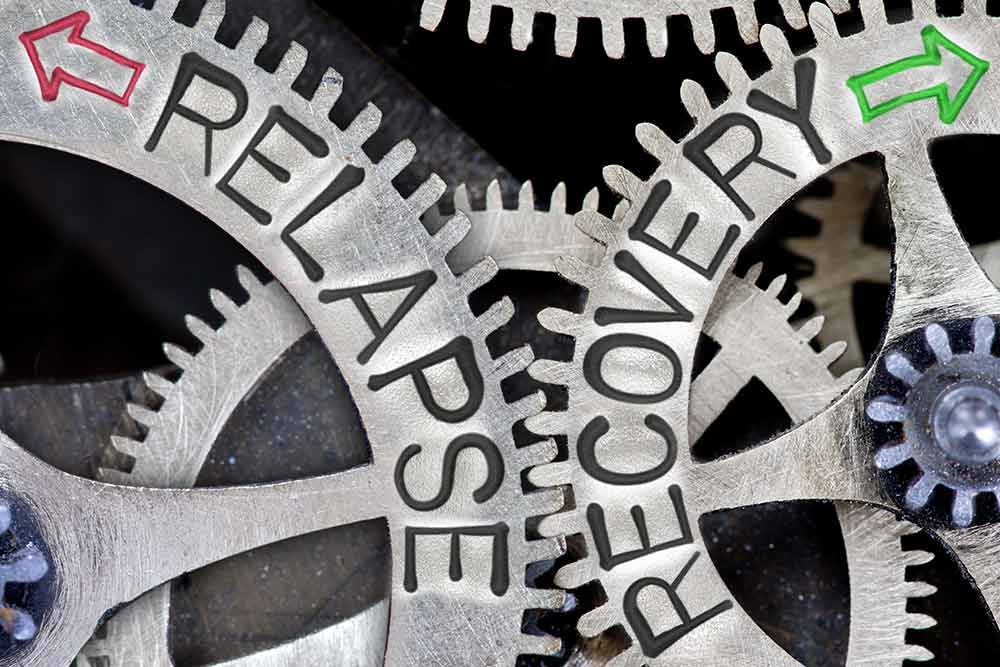Read the latest and greatest from our team
of incredible specialists.

Beach House Recovery Center » Blog » Key Elements of Relapse Prevention
Relapse occurs when a person returns to alcohol or drugs after a period of intentional abstinence. Though relapse can sound or feel like a sudden process, it is actually a gradual sliding back into old behavior and thought patterns which (if left unchecked) can serve as an excuse to continue abusing alcohol and other substances.
Relapse and relapse prevention is especially tricky territory for a sober person at the beginning of the recovery process. Relapse can be confusing and can seem unavoidable or uncontrollable, as something that happens without your participation—but this is not the case. The truth is, if you learn to see the signs, you can spot a potential relapse well in advance and can have better success at preventing it from happening. The key elements of relapse prevention are identifying and addressing triggers; creating a personalized prevention plan; and implementing small and incremental changes in behavior over time.

Recognizing your relapse triggers is one critical element in preventing relapse and coming up with a relapse plan. Relapse triggers can include:
Effective relapse prevention is closely aligned with the maintenance of a daily recovery lifestyle. There are many simple ways to make relapse prevention easier for anyone to manage on a daily basis. First, re-conceptualizing recovery as a daily maintenance process and way of life rather than a crisis management issue is a powerful first step in relapse prevention. The aim of relapse prevention is to promote sustainable change in behavior, and like all change, it is a process that occurs in stages and small increments of action and time.
Learning how to recognize a craving is the first step in controlling a craving rather than letting a craving control you. The second step is to practice letting a craving pass. Many people relapse during the first six months of abstinence, because they never gain the necessary and powerful sober experience of having a craving come and go without using substances to move through it.
Science and neurobiology have proven that there is a direct correlation between stress and craving. If a person can learn more effective ways to deal with stress and how to sit through or get through a craving without drinking or using drugs, they can save themselves from acting on a compulsion to continue drinking and using drugs.
Gaining the experience of going through a feeling without numbing with a substance is just as important as going through a craving without turning to a substance. Learning to identify emotions as they come up is the first part of learning how to have better control over emotions that once caused destructive behavior patterns, such as abusing drugs or alcohol. For many problem drinkers accustomed to numbing out feelings, learning how to understand the feeling they are having, and taking a pause before reacting to that feeling, are important and challenging skills to acquire.
Staying sober also means creating new and different environments to support behavioral changes. Environmental cues related to old drinking or drugging behaviors can and do cause relapse. Revisiting old bars and neighborhoods where drinking or purchases of substances took place, for example, can trigger a reflexive craving or selective memories of “the good old times” that obscure the negative consequences of a past habit. Sometimes just the smell of an old drinking place can be enough to set off a craving. Part of prevention entails safeguarding oneself from the environmental cues that trigger craving and put you at a higher risk for relapse.
Developing a support system is another helpful element of relapse prevention. Creating new routines and exploring new interests are great ways to develop a support system. Joining a 12-step group can also help you build community and nurture connections that support prolonged recovery. Exploring passions and long-forgotten interests can also provide places and activities that put your time to better use and open up new avenues for community support.
It is also important to remember that even if relapse occurs, it falls on a longer continuum of recovery and can be used as a tool for revising a relapse prevention plan in the future. Relapse does not have to mean the end of recovery. Instead, it can help you better target specific areas of personal struggle which have proven to be the most troublesome triggers in the past.
Whether you’re researching for yourself or a loved one, Beach House can help. We understand that this is a serious time in your life and that the treatment center you choose matters. We want you to feel comfortable and empowered to make the right decision for yourself, a friend, or a family member. This is why a counselor is waiting and available to answer your questions and help put your mind at ease regarding the next steps. Many of the staff at Beach House have walked in your shoes. If you feel you’re ready or want more information about how to help a loved one, we can help today. You can also learn why we are voted the #1 rehab for addiction treatment in Florida.
We accept most major insurance plans and can verify your benefits quickly and confidentially.
We’re committed to helping you access the care you need, our admissions counselors can guide you through your coverage options and available resources.





"*" indicates required fields